- About Archives
- About SAA
- Careers
- Education
- Publications
- Advocacy
- Membership
***Voting is NOW open! Members will receive an email from SAA with voting instructions. Voting is open until July 15.***
Vice-Chair/Chair-Elect
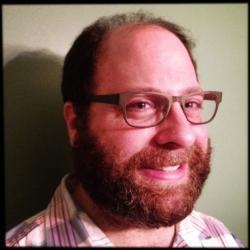 Michael Pahn
Michael Pahn
Head Archivist
National Museum of the American Indian
Smithsonian Institution
Bio: Michael Pahn is the Head Archivist at the Smithsonian Institution’s National Museum of the American Indian Archive Center, located in the museum’s Cultural Resources Center in Suitland, Maryland. Michael began at NMAI in 2003 as the Media Archivist, and has overseen preservation projects funded by the National Film Preservation Foundation, Save America’s Treasures, and the Smithsonian Collections Care and Preservation Fund. His prior experiences include Save Our Sounds Project Librarian at the Smithsonian Center for Folklife and Cultural Heritage, and Librarian at The Nature Conservancy. Michael is a member of the Society of American Archivists’ Native American Archives Roundtable Steering Committee. He has a BA in Anthropology from the University of Pittsburgh and an MLS from the University of Maryland.
Candidate Statement: My continued vision for the future of NAAR is to further use our roundtable as an opportunity to learn about and from each other. Records and collections of and about Native Americans, and Indigenous people from all over the world, are found in so many different repositories that it can be staggering. Many of these repositories have widely divergent missions, scopes, and policies. NAAR is an excellent venue for starting to understand the diversity of these institutions, large and small. My hope is that NAAR grows into a community of tribal repositories and cultural and academic institutions that collaborate and share information, standards, and best practices. It is my hope that NAAR can promote within SAA a culture of respect for the traditions and knowledge systems of the source communities represented in our diverse collections.
Steering Committee (Three Openings)
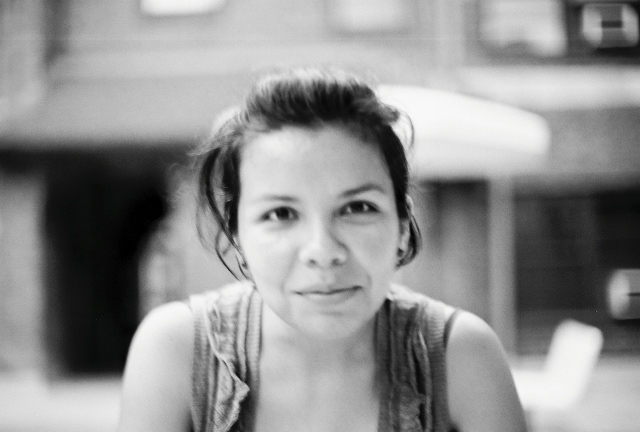 Janet Ceja
Janet Ceja
Assistant Professor, School of Information Resources and Library Science
University of Arizona
Bio: Janet Ceja is an Assistant Professor at the School of Information Resources and Library Science (SIRLS) at the University of Arizona, where her teaching and research are committed to representing and serving the information needs of Native American and Latino populations.
Candidate Statement:
My vision for the Native American Archives Roundtable (NAAR) is to foster archival pluralism and cultural competence among current and future archivists. I propose to achieve this purpose through a webinar series that connects the professional experiences of seasoned archivists with burgeoning archivists. NAAR members would share their expertise and offer much-needed perspective on topics unique to Native American archives to new audiences, including during Native American Heritage Month, International Archives Day, and the American Library Association’s Preservation Week. Webinars can thus be a catalyst for cultivating relationships between the current and next generation of archivists working with Native American communities and archival collections.
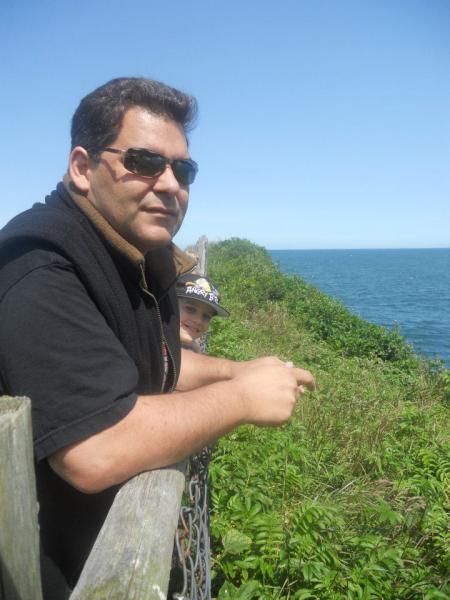 David Lewis
David Lewis
Tribal Historian
The Confederated Tribes of Grand Ronde
Bio: David Gene Lewis, PhD is a member of the Grand Ronde Tribe and is of Santiam, Chinook and Takelma descent. At the Grand Ronde tribe David manages the Cultural Exhibits and Archives program at the museum and serves as the Tribal Historian with consultations at all levels of the tribal government. He is currently working on developing the Chachalu Grand Ronde Tribal Museum and Cultural Center, which opened in June of 2014. He received his doctorate in Anthropology from the University of Oregon in 2009 and has engaged in archival development for 15 years. David is a member of Northwest Archivists and an editor for the Journal of Western Archives, as well as a member in American Anthropological Association, Society for American Ethnohistory and Society of American Archivists. In Oregon, David serves on the Willamette falls heritage Board and the Oregon Historical Society Library Advisory committee and the Confluence Project Advisory Committee as well as his second term on the Oregon Heritage Commission where he is currently the Chair. While a graduate student at UO David was the Southwest Oregon Research Project Coordinator for at least six years and was a researcher to the National Archives Records Administration and National Anthropological Archives on three projects from 1997-2009. David was the principal organizer of the SWORP collection at the UO which is the most well used collection currently in Special Collections and wrote the finding aid to the collection. David is a research and writer concentrating his work on the history and culture of the Grand Ronde and other tribes of western Oregon. Among his many publications are book chapters and journal articles on Ethnohistory, tribal archives, book reviews and the Native American history of Oregon. David has published in the Willamette valley Voices journal published by the Willamette Heritage Center, and the Oregon Historical Quarterly. David serves on the Oregon Encyclopedia Advisory Board for the past nine years and has published 13 articles on the OE. David regularly consults on regional interpretive projects with METRO, and the Cities of Portland, Salem, Oregon City, West Linn, Lake Oswego and Dayton.
Candidate Statement: As the Tribal Historian Archivist, Researcher and Curator for my tribe I bring vision to the efforts we are undertaking to develop the museum. I helped design many aspects of the museum and its programs. Long term planning for funding and for programs is a strength of what I accomplished at the tribe. Similarly on the Oregon heritage commission I serve as a catalyst for development of resources for the heritage of the state of Oregon as we engage with many difficult issues to help keep heritage organization operations and relevant to the people of Oregon. In my work I like to fully understand the situations and find was that we can coalesce various efforts together to form solid projects and programs that benefit our community. The more that projects and programs are interrelated to larger efforts the better we can make them resonate with the communities we serve. Focusing on NAAR need and goals, we need to move forward with a continuous presence at local and national conferences to bring issues facing tribes and tribal archivists to the forefront of archival discussions. I believe we need to follow the excellent path established previously of holding forums to discuss issues. I think we also need to look for allies and support within related disciplines, anthropology, folk-lore, history, Ethnohistory and the like to carry the discussion further.
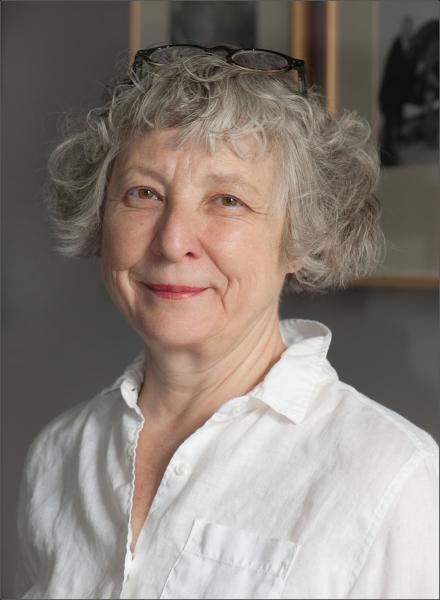 Barbara Mathe
Barbara Mathe
Head, Library Special Collections
American Museum of Natural History
Bio: Barbara Mathé has been Head of Library Special Collections at the American Museum of Natural History since 1998. In 2002, she was also named Museum Archivist, charged with coordinating with the scientific collection managers who oversee the archives held in the Museum’s science departments. With an M.S.L.S from Columbia University emphasizing archival studies and four years as Assistant Museum Librarian at the Goldwater Library in the Department of the Arts of Africa, Oceania and the Americas at the Metropolitan Museum of Art (1994-1998), Mathé is familiar with the culture of museums and archives. She publishes and lectures on ethnographic photography, and on metadata issues, including a forthcoming presentation at the International Council of Archives, this October, about how indigenous cultures have knowledge systems that specify who has access to certain knowledge and how open source software programs, like Mukurtu and Ara Iritija have addressed these issues.
Candidate Statement: As a member of the steering committee, I would like to see NAAR’s membership expanded to include more representatives of tribal archives, libraries and museums. One way I can imagine accomplishing this is by creating a formal relationship with the Association of Tribal, Archives, Libraries and Museums with mutual liaisons to represent each association to the other, since many cannot attend both meetings every year.
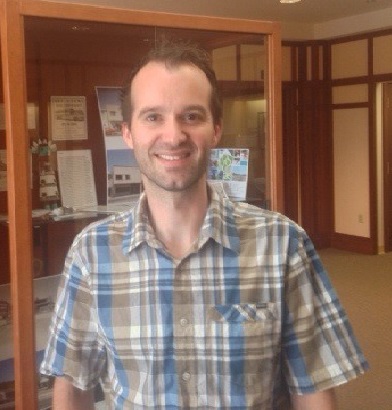 Jonathan Pringle
Jonathan Pringle
Curator of Visual Materials
Northern Arizona University, Cline Library, Special Collections and Archives
Bio: Jonathan Pringle is Curator of Visual Materials at Northern Arizona University's Cline Library, Special Collections and Archives; he has been in this position since May 2011. Prior to NAU, Jonathan was the Archivist at the Museum of Northern Arizona from 2008-2011. He graduated from the University of British Columbia's School of Library, Archival and Information Studies with a Master of Archival Studies in 2008. During his studies, he took a focused First Nations concentration, allowing him to better understand traditional archival theory and its application in an indigenous setting.
Candidate Statement: I have been involved with the Native American Archives Roundtable since transitioning to Northern Arizona University in 2011. I was happy to become part of a team in the very space where collaboration helped create the Protocols for Native American Archival Materials (the Protocols were drafted at NAU between 2005-06). Since its publication, NAU has endorsed and adopted the Protocols and incorporated many recommendations into its workflow. As part of my responsibilities with the photographic and moving images, I have added terminology from the National Indian Law Library to our lexicon of vocabularies when describing items that we have digitized and put online. I also regularly consult with communities of origin when selecting content and strive to ensure that cultural sensitivity is observed in all aspects of the selection process. I enjoy the challenge of bridging traditional archival theory with the needs expressed by Native American communities and presenting (conferences etc.) on the successes we've had here at NAU. I collaborate regularly with my colleagues at the Association of Canadian Archivists (ACA) on similar matters and enjoy creating an international dialogue through presentations at both ACA and the Society of American Archivists. I would like to continue my collaborative work with ACA and its Special Interest Section on Aboriginal Archives and would like to see the NAAR help facilitate this collaboration.